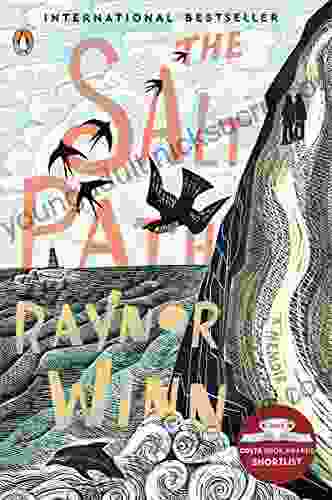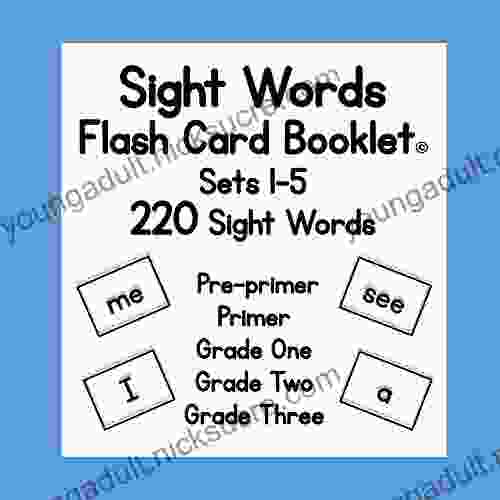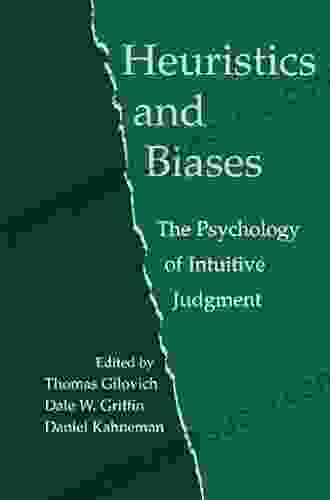Proust Was a Neuroscientist: Unlocking the Secrets of the Brain through Literature

4.5 out of 5
| Language | : | English |
| File size | : | 2564 KB |
| Text-to-Speech | : | Enabled |
| Screen Reader | : | Supported |
| Enhanced typesetting | : | Enabled |
| Word Wise | : | Enabled |
| Print length | : | 256 pages |
| Lending | : | Enabled |
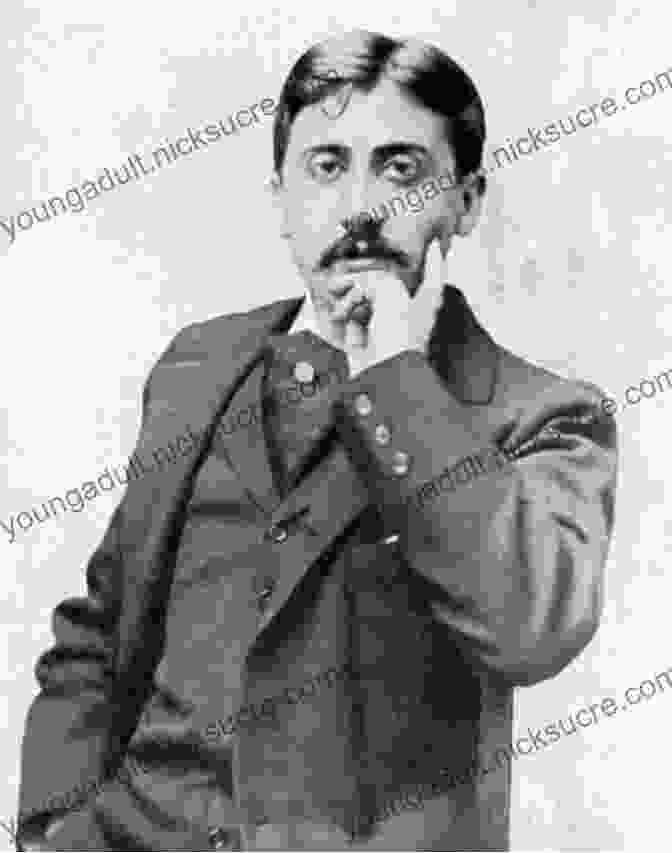
Marcel Proust, the celebrated French novelist, is not typically associated with the field of neuroscience. However, a closer examination of his masterpiece, "In Search of Lost Time," reveals a profound understanding of the workings of the human mind that aligns remarkably with the findings of modern brain research. Proust's literary genius offers a unique lens through which we can explore the complexities of memory, consciousness, and the nature of time itself.
Proust's Explorations of Memory
Proust's work is deeply rooted in the exploration of memory. The narrator's recollection of his childhood in the fictional town of Combray, triggered by the taste of a madeleine dipped in tea, has become a literary touchstone. This seemingly trivial sensory experience evokes a flood of memories that transport the narrator back through time, unraveling the intricate tapestry of his past.
Neuroscience has confirmed the importance of sensory cues in triggering memories. The hippocampus, a brain structure crucial for memory formation, is highly interconnected with sensory processing areas. When we encounter a familiar smell, sound, or taste, it activates neural pathways that connect to the memories associated with that sensory experience. This phenomenon, known as context-dependent memory, is precisely what Proust captures in his description of the madeleine episode.
The Stream of Consciousness
Proust's writing style, characterized by long, meandering sentences that delve into the innermost thoughts and sensations of his characters, mimics the stream of consciousness. This technique provides an unparalleled glimpse into the complexities of the human mind.
Modern brain scans have shown that thoughts and emotions do not exist as discrete entities but rather flow continuously through our brains. The default mode network, a group of brain regions that become active when we are not engaged in specific tasks, is responsible for much of this spontaneous thought activity. Proust's stream-of-consciousness style captures the fluidity and interconnectedness of mental processes, foreshadowing the insights of neuroscience.
Time and the Subjective Experience
Proust's novel also explores the subjective experience of time. The narrator's memories are not presented in a linear fashion but rather as a non-chronological tapestry, reflecting the way our brains encode and retrieve memories.
Neuroscientists have demonstrated that the brain does not perceive time as a linear and absolute entity. Instead, our perception of time is influenced by our emotions, experiences, and expectations. Proust's work captures this fluidity of time, revealing the non-linear and subjective nature of our inner experiences.
The Role of Dreams and Unconscious Processes
Proust's novel places great emphasis on dreams and unconscious processes in shaping our understanding of the world. The narrator's dreams, particularly his recurring nightmares, provide insight into his deepest fears and desires.
Dream research has shown that dreams are an active process of the brain, playing a role in memory consolidation, emotional regulation, and problem-solving. Dreams may also reveal aspects of our unconscious mind that are not easily accessible during wakefulness, a phenomenon explored in depth by Proust.
s
Marcel Proust's groundbreaking literary masterpiece, "In Search of Lost Time," offers a profound understanding of the human mind that echoes the insights of modern neuroscience. Proust's exploration of memory, the stream of consciousness, time, and unconscious processes aligns remarkably with scientific discoveries made decades later. His work serves as a testament to the interconnectedness of art and science, demonstrating the power of literature to illuminate the complexities of the human condition.
By delving into Proust's literary genius, we can gain a deeper appreciation for the intricate workings of our own minds. Proust's insights into memory, consciousness, and time provide a roadmap for exploring the uncharted territories of neuroscience, encouraging us to embrace the subjective and non-linear aspects of our inner experiences.
References
* Proust, M. (2003). In search of lost time. New York: Modern Library. * Baddeley, A., Eysenck, M. W., & Anderson, M. C. (2015). Memory. Hove: Psychology Press. * Damasio, A. R. (2018). The strange order of things: Life, feeling, and the making of cultures. New York: Pantheon Books. * Gallese, V., & Lakoff, G. (2005). The brain's concepts: The role of the sensory-motor system in conceptual knowledge. Cognitive Neuropsychology, 22(3-4),455-479. * Maquet, P., Degueldre, C., Delfiore, G., Aerts, J., Peters, J. M., Luxen, A., & Franck, G. (1997). Functional neuroanatomy of human rapid-eye-movement sleep and dreaming. Nature, 383(6596),163-166.
4.5 out of 5
| Language | : | English |
| File size | : | 2564 KB |
| Text-to-Speech | : | Enabled |
| Screen Reader | : | Supported |
| Enhanced typesetting | : | Enabled |
| Word Wise | : | Enabled |
| Print length | : | 256 pages |
| Lending | : | Enabled |
Do you want to contribute by writing guest posts on this blog?
Please contact us and send us a resume of previous articles that you have written.
 Fiction
Fiction Non Fiction
Non Fiction Romance
Romance Mystery
Mystery Thriller
Thriller SciFi
SciFi Fantasy
Fantasy Horror
Horror Biography
Biography Selfhelp
Selfhelp Business
Business History
History Classics
Classics Poetry
Poetry Childrens
Childrens Young Adult
Young Adult Educational
Educational Cooking
Cooking Travel
Travel Lifestyle
Lifestyle Spirituality
Spirituality Health
Health Fitness
Fitness Technology
Technology Science
Science Arts
Arts Crafts
Crafts DIY
DIY Gardening
Gardening Petcare
Petcare Tara Sim
Tara Sim Jessica Jung
Jessica Jung Serena B Miller
Serena B Miller Lisa Preston
Lisa Preston Pete Sampras
Pete Sampras Robert Kirk
Robert Kirk Cap N Fatty Goodlander
Cap N Fatty Goodlander Jay Griffiths
Jay Griffiths John Geiger
John Geiger Jeffrey Thurston
Jeffrey Thurston Angeline Boulley
Angeline Boulley William D Lopez
William D Lopez Dr Eva Beaulieu
Dr Eva Beaulieu Bradley Charbonneau
Bradley Charbonneau William Bryant Logan
William Bryant Logan Bradley T Erford
Bradley T Erford Andrea Lankford
Andrea Lankford Emily Nielson
Emily Nielson Alberta Hawse
Alberta Hawse G K Derosa
G K Derosa Jorge Ramos Mizael
Jorge Ramos Mizael Pete Dunne
Pete Dunne Emily Souder
Emily Souder Karen Sternheimer
Karen Sternheimer Ruth Benedict
Ruth Benedict Tristan Higbee
Tristan Higbee Sir Edmund Hillary
Sir Edmund Hillary Stephen Rea
Stephen Rea Miles Olson
Miles Olson Ed Stafford
Ed Stafford Tania N Shah
Tania N Shah Andy Mitchell
Andy Mitchell Liv Ryan
Liv Ryan Sam Fury
Sam Fury K Moriyasu
K Moriyasu Joseph Mazur
Joseph Mazur Joe Berardi
Joe Berardi Rebecca P Cohen
Rebecca P Cohen Kim West
Kim West Tanya Lee Stone
Tanya Lee Stone Violet White
Violet White Angela C Wu
Angela C Wu Barry Pickthall
Barry Pickthall Ryan Beck
Ryan Beck Andy Farrell
Andy Farrell Arlin Smith
Arlin Smith David E Jones
David E Jones Elly Molina
Elly Molina Carlos Acevedo
Carlos Acevedo Nicole Smith
Nicole Smith Miranda Green
Miranda Green Madeleine Roux
Madeleine Roux Thomas Golf
Thomas Golf Jenny Smith
Jenny Smith Florian Freistetter
Florian Freistetter Lisa Marie Mercer
Lisa Marie Mercer Cynthia Nims
Cynthia Nims Karl Beecher
Karl Beecher Ron Jeffries
Ron Jeffries Jeffrey Lee
Jeffrey Lee Mitch Horowitz
Mitch Horowitz Mirabai Starr
Mirabai Starr Rod Powers
Rod Powers Beth A Leonard
Beth A Leonard Patrick Pickens
Patrick Pickens Nathaniel Rich
Nathaniel Rich Karen Elliott House
Karen Elliott House Tirzah Price
Tirzah Price Margaret Jordan Halter
Margaret Jordan Halter Carlo Rovelli
Carlo Rovelli Anna Rashbrook
Anna Rashbrook Robin Ray Green
Robin Ray Green Lutz Hanseroth
Lutz Hanseroth Jo May
Jo May Kent David Kelly
Kent David Kelly Jamie Kuykendall
Jamie Kuykendall Warren St John
Warren St John Richard A Muller
Richard A Muller Kristen S Kurland
Kristen S Kurland Stefanie K Johnson
Stefanie K Johnson Kathy Hoopmann
Kathy Hoopmann Caryl Say
Caryl Say Rebecca Solnit
Rebecca Solnit Howard Davis
Howard Davis Neveen Musa
Neveen Musa Judea Pearl
Judea Pearl Stacy Mccullough
Stacy Mccullough Gillian Price
Gillian Price Michele Borba
Michele Borba Mtg Editorial Board
Mtg Editorial Board Richard Bate
Richard Bate Caspar Melville
Caspar Melville Michael Driscoll
Michael Driscoll Jon Ronson
Jon Ronson Stuart Lawrence
Stuart Lawrence Dave Smith
Dave Smith Tim Hannigan
Tim Hannigan Humberto G Garcia
Humberto G Garcia Kevin Hunter
Kevin Hunter T R Fehrenbach
T R Fehrenbach Ellen J Langer
Ellen J Langer Jeff Fleischer
Jeff Fleischer Robert Dudley
Robert Dudley Sharon Strand Ellison
Sharon Strand Ellison Kelly Corrigan
Kelly Corrigan Fredrik Backman
Fredrik Backman Angelo Tropea
Angelo Tropea Petros Efthymiou
Petros Efthymiou William Ayers
William Ayers Gerard Siggins
Gerard Siggins Cory Mortensen
Cory Mortensen Nicholas Epley
Nicholas Epley Jenna Blough
Jenna Blough Samuel B Green
Samuel B Green Wynne Foster
Wynne Foster Yvonne Choquet Bruhat
Yvonne Choquet Bruhat Robyn Ryle
Robyn Ryle John Samuel Barnett
John Samuel Barnett Danil Zburivsky
Danil Zburivsky Jeff Mach
Jeff Mach Mark Lester
Mark Lester Joan Jacobs Brumberg
Joan Jacobs Brumberg Margaret Visser
Margaret Visser Charlotte Klaar Phd
Charlotte Klaar Phd Elizabeth Hunter
Elizabeth Hunter Shenila Khoja Moolji
Shenila Khoja Moolji Oliver Burkeman
Oliver Burkeman Hourly History
Hourly History Sabbithry Persad Mba
Sabbithry Persad Mba Jonathan Gottschall
Jonathan Gottschall George Johnson
George Johnson Johnny Molloy
Johnny Molloy Patrick Ejeke
Patrick Ejeke Margaret M Quinlan
Margaret M Quinlan Peter Gibson
Peter Gibson Richard L Sites
Richard L Sites Judith Hoare
Judith Hoare Christina Hillsberg
Christina Hillsberg Angela Leslee
Angela Leslee Laura Hillman
Laura Hillman Dan Ariely
Dan Ariely Jane M Healy
Jane M Healy Keith Elliot Greenberg
Keith Elliot Greenberg Roger Craig
Roger Craig Joseph Phillips
Joseph Phillips Daddilife Books
Daddilife Books Germano Dalcielo
Germano Dalcielo Alessio Mangoni
Alessio Mangoni Belinda Norton
Belinda Norton Lucy Postgate
Lucy Postgate Carol Ann Gillespie
Carol Ann Gillespie Linda Sivertsen
Linda Sivertsen Phil Burt
Phil Burt Emma Dalton
Emma Dalton Richard G Brown
Richard G Brown Lois A Ritter
Lois A Ritter Tom Allen
Tom Allen Marie Brennan
Marie Brennan Jim Saccomano
Jim Saccomano Matthew D Dewar
Matthew D Dewar Bernd Heinrich
Bernd Heinrich Rachel Kowert
Rachel Kowert Rob Willson
Rob Willson Yuu Tanaka
Yuu Tanaka Kim Foley Mackinnon
Kim Foley Mackinnon Mike Chambers
Mike Chambers Karl E Peace
Karl E Peace John Sonmez
John Sonmez Robin Yocum
Robin Yocum Raynor Winn
Raynor Winn Frederick Aardema
Frederick Aardema Forrest Maready
Forrest Maready Rebecca Boggs Roberts
Rebecca Boggs Roberts Madison Lee
Madison Lee Dave Duncan
Dave Duncan Rodney Castleden
Rodney Castleden Jules Brown
Jules Brown Jordan Summers
Jordan Summers Walter Beede
Walter Beede Ron Douglas
Ron Douglas Christian Wiggins
Christian Wiggins Katrina Cope
Katrina Cope Barak Ariel
Barak Ariel Robert Zubek
Robert Zubek Mark Remy
Mark Remy Joy Williams
Joy Williams Mercedes Pollmeier
Mercedes Pollmeier Scott Alan Johnston
Scott Alan Johnston Stephen Jungmann
Stephen Jungmann Shane O Mara
Shane O Mara Johnson Egonmwan
Johnson Egonmwan Janet Menzies
Janet Menzies Dave Gray
Dave Gray Eugene P Northrop
Eugene P Northrop Marilyn Burgos
Marilyn Burgos Mark Rosenman
Mark Rosenman John B Nici
John B Nici Natalie Rhodes
Natalie Rhodes Stephen Cheney
Stephen Cheney Adam Skolnick
Adam Skolnick Marc Charles
Marc Charles Shreya Ramachandran
Shreya Ramachandran Sylvester Nemes
Sylvester Nemes Angelo Lowery
Angelo Lowery Eric Schmitz
Eric Schmitz Marie Myung Ok Lee
Marie Myung Ok Lee Murtaza Haider
Murtaza Haider Stephen Grossberg
Stephen Grossberg David C Keehn
David C Keehn Ingrid S Clay
Ingrid S Clay Ashley Rickards
Ashley Rickards Michael Tomasello
Michael Tomasello Bill Schneider
Bill Schneider Lee Cronk
Lee Cronk Scott Meyer
Scott Meyer Baby Professor
Baby Professor Ben Ehrenreich
Ben Ehrenreich Schoolhouse Heaven
Schoolhouse Heaven Robyn Wideman
Robyn Wideman Ryan Bow
Ryan Bow Jodi Picoult
Jodi Picoult Mary Pipher
Mary Pipher Catherine Mccord
Catherine Mccord Deborah Wall
Deborah Wall Capn Fatty Goodlander
Capn Fatty Goodlander Patrick M Lencioni
Patrick M Lencioni Joel J Lerner
Joel J Lerner D M Davis
D M Davis Frank Deford
Frank Deford J D Swanson
J D Swanson Seth Lloyd
Seth Lloyd S L Macgregor Mathers
S L Macgregor Mathers Rufus Estes
Rufus Estes William E Hearn
William E Hearn Tiara Mcclure
Tiara Mcclure Rebecca Eanes
Rebecca Eanes Jay Matthews
Jay Matthews Harry Fairhead
Harry Fairhead Mark Wells
Mark Wells Chris Santella
Chris Santella Rebecca Hemmings
Rebecca Hemmings David Herres
David Herres Alex Wolf
Alex Wolf Andy Tyson
Andy Tyson Howell Raines
Howell Raines Irene Gut Opdyke
Irene Gut Opdyke Keith Crowley
Keith Crowley Dawn Griffiths
Dawn Griffiths Chris Chelios
Chris Chelios United States Government Us Army
United States Government Us Army Kate Le Roux
Kate Le Roux Tim O Connor
Tim O Connor George E Hein
George E Hein Sandra Steingraber
Sandra Steingraber Richard Lemaster
Richard Lemaster Andy Dowsett
Andy Dowsett Tom Chatfield
Tom Chatfield Ruby Lang
Ruby Lang Robert Urban
Robert Urban Rachel Connelly
Rachel Connelly Connie Schultz
Connie Schultz Jessica Nordell
Jessica Nordell Shalabh Aggarwal
Shalabh Aggarwal Tina Nelson
Tina Nelson Wayne Mcghie
Wayne Mcghie Rick Vaive
Rick Vaive Bob Gordon
Bob Gordon Ariel Henley
Ariel Henley Brian Cain
Brian Cain Avinash Navlani
Avinash Navlani Andy Jurinko
Andy Jurinko Mark Shepherd
Mark Shepherd Scott Stillman
Scott Stillman R E Burrillo
R E Burrillo Mometrix
Mometrix L S Boos
L S Boos Leanne Ely
Leanne Ely Robert Lindsay
Robert Lindsay Donald N Yates
Donald N Yates Stewart Shapiro
Stewart Shapiro Michael Anthony
Michael Anthony Kathryn Miles
Kathryn Miles Troy A Hill
Troy A Hill David Kinney
David Kinney Jennifer Bohnet
Jennifer Bohnet Robert E Stake
Robert E Stake Afra J Zomorodian
Afra J Zomorodian Gary B Meisner
Gary B Meisner Elizabeth Kaledin
Elizabeth Kaledin Martin Volken
Martin Volken Stephanie Land
Stephanie Land Nicholas Jubber
Nicholas Jubber Tj Faultz
Tj Faultz Samir P Desai
Samir P Desai James Quinn
James Quinn Teresa Parker
Teresa Parker Ben Campbell
Ben Campbell Massimo Florio
Massimo Florio Keylee C Hargis
Keylee C Hargis Lin Wellford
Lin Wellford Christopher O Kennon
Christopher O Kennon Bret A Moore
Bret A Moore Viviana Altuve
Viviana Altuve Joshua Clark
Joshua Clark Tovah Feldshuh
Tovah Feldshuh Angela Smith
Angela Smith Manik Joshi
Manik Joshi Richard Hibshman
Richard Hibshman Robin Benway
Robin Benway Tim Macwelch
Tim Macwelch Angel Millar
Angel Millar Daniel Friedmann
Daniel Friedmann Rosie Daley
Rosie Daley Warren Sande
Warren Sande Meg Long
Meg Long Kristen Jervis Cacka
Kristen Jervis Cacka Mark W Steege
Mark W Steege Guy Evans
Guy Evans Erich Fromm
Erich Fromm Angela Thayer
Angela Thayer Tigran Bagdasaryan
Tigran Bagdasaryan George Noory
George Noory Thomas Gilovich
Thomas Gilovich Angela Eckhoff
Angela Eckhoff Jim Prime
Jim Prime Cate Tiernan
Cate Tiernan Steve Hindman
Steve Hindman Kat Anderson
Kat Anderson Jeanne Godfrey
Jeanne Godfrey Mark J Musser
Mark J Musser Bob Clouser
Bob Clouser Richard Lee Byers
Richard Lee Byers James M Johnston
James M Johnston Donna Helen Crisp Jd Msn Rn Pmhcns Bc
Donna Helen Crisp Jd Msn Rn Pmhcns Bc Kari Marie Norgaard
Kari Marie Norgaard Peter Townsend
Peter Townsend M J Fievre
M J Fievre Sam Bleakley
Sam Bleakley Angel Burns
Angel Burns Jerry Toner
Jerry Toner Tom Dymond
Tom Dymond Laura Bogen
Laura Bogen Ray Walker
Ray Walker Dennis Rainey
Dennis Rainey Stephen Lynch
Stephen Lynch Harold S Koplewicz
Harold S Koplewicz Matt Vincent
Matt Vincent Tim Larkin
Tim Larkin Third Edition Kindle Edition
Third Edition Kindle Edition Diana Nyad
Diana Nyad Otto Rahn
Otto Rahn Louis Martin
Louis Martin Wendy Rosenoff
Wendy Rosenoff Stefan Hunziker
Stefan Hunziker Kenneth R Ginsburg
Kenneth R Ginsburg Sandy Tolan
Sandy Tolan Tovar Cerulli
Tovar Cerulli Dwight E Neuenschwander
Dwight E Neuenschwander Devaki Lakshmi
Devaki Lakshmi Chanel Craft Tanner
Chanel Craft Tanner Leonard Lueras
Leonard Lueras John C Maxwell
John C Maxwell Diana Winston
Diana Winston Ellen Frank
Ellen Frank Lindsay Ford
Lindsay Ford Emiko Jean
Emiko Jean Ted Sandling
Ted Sandling Mark Verstegen
Mark Verstegen Rebecca Serle
Rebecca Serle Christian Heath
Christian Heath Lawrence Goldstone
Lawrence Goldstone Rachel Hutt Phd
Rachel Hutt Phd Rodney Paul
Rodney Paul Neil Hawkesford
Neil Hawkesford Jeffrey Bernstein
Jeffrey Bernstein Siena Cherson Siegel
Siena Cherson Siegel Kevin J Gaston
Kevin J Gaston Nick Bradley
Nick Bradley Andy Crowe
Andy Crowe Andy Peloquin
Andy Peloquin Robb Manning
Robb Manning Rafael Gordillo Naranjo
Rafael Gordillo Naranjo Chip Heath
Chip Heath Dean Beaumont
Dean Beaumont Thais Nye Derich
Thais Nye Derich Kim Dragoner
Kim Dragoner Jeremy Klaff
Jeremy Klaff George Megre
George Megre Jenna Helwig
Jenna Helwig Eli Wilson
Eli Wilson Angela Stancar Johnson
Angela Stancar Johnson David Graeber
David Graeber Roland A Boucher
Roland A Boucher Lynn Palm
Lynn Palm Hajime Isayama
Hajime Isayama David Goodman
David Goodman Kevin Thomas
Kevin Thomas Milton Roth
Milton Roth Colby Coombs
Colby Coombs Rashaun Johnson
Rashaun Johnson Angelo Chiari
Angelo Chiari Lidia Bastianich
Lidia Bastianich Christina Reese
Christina Reese W Todd Woodard
W Todd Woodard Michael V Uschan
Michael V Uschan Chuck Weikert
Chuck Weikert Ryan D Agostino
Ryan D Agostino Angelina J Steffort
Angelina J Steffort Dan Heath
Dan Heath Julia Reed
Julia Reed Joyce Yang
Joyce Yang Eliot Schrefer
Eliot Schrefer Chef Maggie Chow
Chef Maggie Chow Jeffrey T Richelson
Jeffrey T Richelson Bob Swope
Bob Swope Israelin Shockness
Israelin Shockness Aaron Wilson
Aaron Wilson Susan Burton
Susan Burton Nikki Ace
Nikki Ace Paul Cobley
Paul Cobley Christopher Nyerges
Christopher Nyerges Mark Kernion
Mark Kernion Jim Posewitz
Jim Posewitz Derek M Steinbacher
Derek M Steinbacher Nicholas D Kristof
Nicholas D Kristof Judith S Beck
Judith S Beck Jason Hogan
Jason Hogan Elizabeth Foss
Elizabeth Foss Dhonielle Clayton
Dhonielle Clayton Douglas Henderson Jr
Douglas Henderson Jr Jessica Wolstenholm
Jessica Wolstenholm Kyle Graves
Kyle Graves Ken Dryden
Ken Dryden Lynn Lyons
Lynn Lyons Donna Mott
Donna Mott Cheryl Alkon
Cheryl Alkon Jodi Shabazz
Jodi Shabazz Andy Schell
Andy Schell Charney Herst
Charney Herst Tim Thayne
Tim Thayne Latonya J Trotter
Latonya J Trotter Gregory J Davenport
Gregory J Davenport Donald R Prothero
Donald R Prothero T L Payne
T L Payne Scott Turner
Scott Turner Rawdon Wyatt
Rawdon Wyatt Mandee Heller Adler
Mandee Heller Adler Jonah Lehrer
Jonah Lehrer Kathy Freston
Kathy Freston Peter Finch
Peter Finch Ben Bleiweiss
Ben Bleiweiss Joe Peta
Joe Peta Tea Rozman Clark
Tea Rozman Clark Erin Moulton
Erin Moulton Mark Synnott
Mark Synnott Robyn Harding
Robyn Harding Muako Maepa
Muako Maepa Kristina Statler
Kristina Statler Andy Puddicombe
Andy Puddicombe Greg Prato
Greg Prato Ashley P Martin
Ashley P Martin
Light bulbAdvertise smarter! Our strategic ad space ensures maximum exposure. Reserve your spot today!
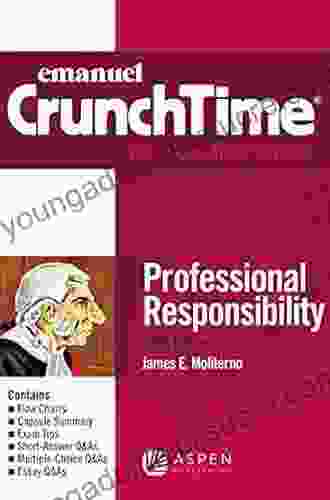
 Banana YoshimotoEmanuel Crunchtime: A Long-Tail Description of Professional Responsibility
Banana YoshimotoEmanuel Crunchtime: A Long-Tail Description of Professional Responsibility Joseph HellerFollow ·13.4k
Joseph HellerFollow ·13.4k Michael SimmonsFollow ·2.1k
Michael SimmonsFollow ·2.1k Clinton ReedFollow ·3.2k
Clinton ReedFollow ·3.2k Jack ButlerFollow ·16.4k
Jack ButlerFollow ·16.4k Alec HayesFollow ·12.5k
Alec HayesFollow ·12.5k Jarrett BlairFollow ·8.1k
Jarrett BlairFollow ·8.1k Harold PowellFollow ·3.7k
Harold PowellFollow ·3.7k Neal WardFollow ·13.2k
Neal WardFollow ·13.2k

 Devon Mitchell
Devon MitchellDelve into the Comprehensive World of Cartridges: A...
In the realm of firearms, cartridges stand...
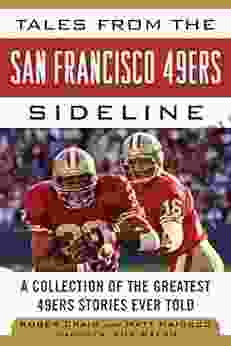
 Joseph Conrad
Joseph ConradTales From The San Francisco 49ers Sideline: A Look...
The San Francisco 49ers are one of the most...

 Ervin Bell
Ervin BellArcGIS Desktop 10: A Comprehensive GIS Tutorial for...
Geographic information...

 Reed Mitchell
Reed MitchellPhysiology Pretest Self Assessment And Review 14th...
Accurately gauge your physiology knowledge and...
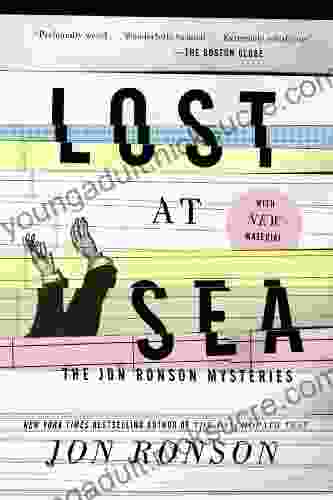
 Devin Ross
Devin RossLost At Sea: The Unbelievable True Story of the Jon...
In 2009, journalist Jon Ronson set out to...
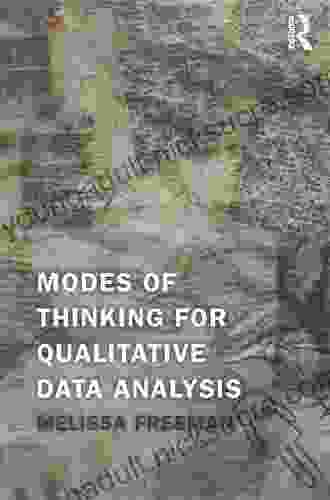
 Shane Blair
Shane BlairModes of Thinking for Qualitative Data Analysis
Qualitative data analysis is a complex...
4.5 out of 5
| Language | : | English |
| File size | : | 2564 KB |
| Text-to-Speech | : | Enabled |
| Screen Reader | : | Supported |
| Enhanced typesetting | : | Enabled |
| Word Wise | : | Enabled |
| Print length | : | 256 pages |
| Lending | : | Enabled |





